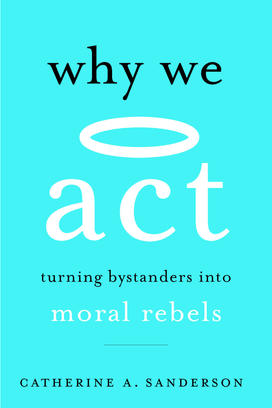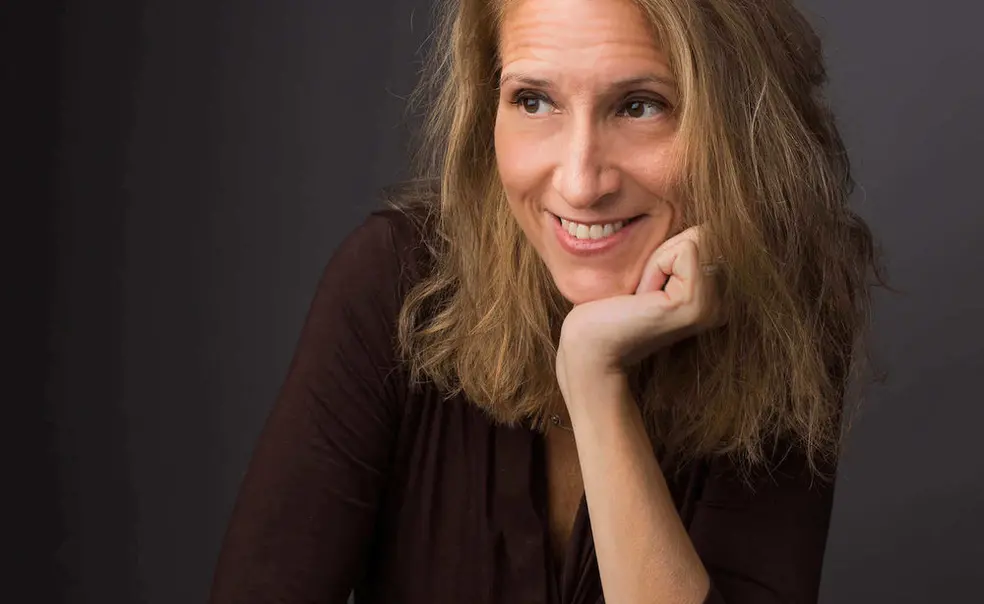Catherine Sanderson *97’s Advice for Changing Social Norms During a Pandemic

The book: Particularly in today’s global climate, one individual’s social-distancing practices can make an important contribution to slowing the overall spread of disease during a pandemic. Why do people fail to act when a small change can make a big impact? From sexual harassment to bullying, political malfeasance to turning a blind eye to someone who needs help, good people often let bad things slide. Social psychologist Catherine A. Sanderson *97 delves into why silence so often perpetuates cruel behavior.
Why We Act: Turning Bystanders into Moral Rebels (Harvard University Press) shows that a tendency towards inaction is neurologically hardwired in our brains. But we can learn how to challenge it. If we undergo the right training, Sanderson argues, we can fortify moral courage and teach bystanders to boldly lead a new charge in the right direction.
The author: Catherine A. Sanderson *97 is the Manwell Family Professor in Life Sciences at Amherst College and the author of The Positive Shift: Mastering Mindset to Improve Happiness, Health, and Longevity. She has written five college textbooks as well as widely-taught middle and high school healthy textbooks. Sanderson lectures around the country and was chosen by The Princeton Review as one of the best college professors in America. Her work has been featured in The Atlantic and Washington Post and on CBS and NBC.
Opening lines: On August 25, 2017, my husband and I spent the day settling in our oldest child, Andrew, for the start of his first year at college. We went to Walmart to buy a minifridge and rug. We hung posters above his bed. We attended the obligatory goodbye family lunch before returning to our car to head home to a slightly quieter house.
Two weeks later Andrew called, which was unusual since, like most teenagers, he vastly prefers texting. His voice breaking, he told me that a student in his dorm had just died.
As he described it on the phone, the two of them seemed to have so much in common. They were both freshmen. They were both from Massachusetts and had attended rival prep schools. They both had younger brothers.
“What happened?” I asked.
He told me that the student had been drinking alcohol with friends. He got drunk, and around 9 P.M. on Saturday, he fell and hit his head. His friends, roommate, and lacrosse teammates watched over him for many hours. They strapped a backpack around his shoulders to keep him from rolling onto his back, vomiting, and then choking to death. They periodically checked to make sure he was still breathing.
But what they didn’t do — for nearly 20 hours after the fall — was call 911.
By the time they did finally seek help, at around 4 P.M. on Sunday, it was too late. The student was taken to a hospital and put on life support so that his family could fly in to say goodbye.
Now, it’s impossible to know whether prompt medical attention could have saved his life. Perhaps it wouldn’t have. But what is clear is that he didn’t get that opportunity. And this story — of college students failing to do anything in the face of a serious emergency — is hardly unusual.
It’s not just college students who choose not to act, even when the stakes are high.
Reviews: “In an age of government misconduct, corporate malfeasance, and #MeToo, it’s tempting to believe that bad things happen because of bad actors. But as Catherine Sanderson compellingly illustrates, these events aren’t just due to ‘a few bad apples’ — they are enabled and sustained by good people who are complicit in behavior they know to be wrong. This book is a must-read for anyone who wants to understand why we can become silent bystanders to unconscionable actions—and what we can do to empower ourselves and others to speak out.” – Asha Rangappa ’96, national security analyst for CNN and former FBI agent












No responses yet